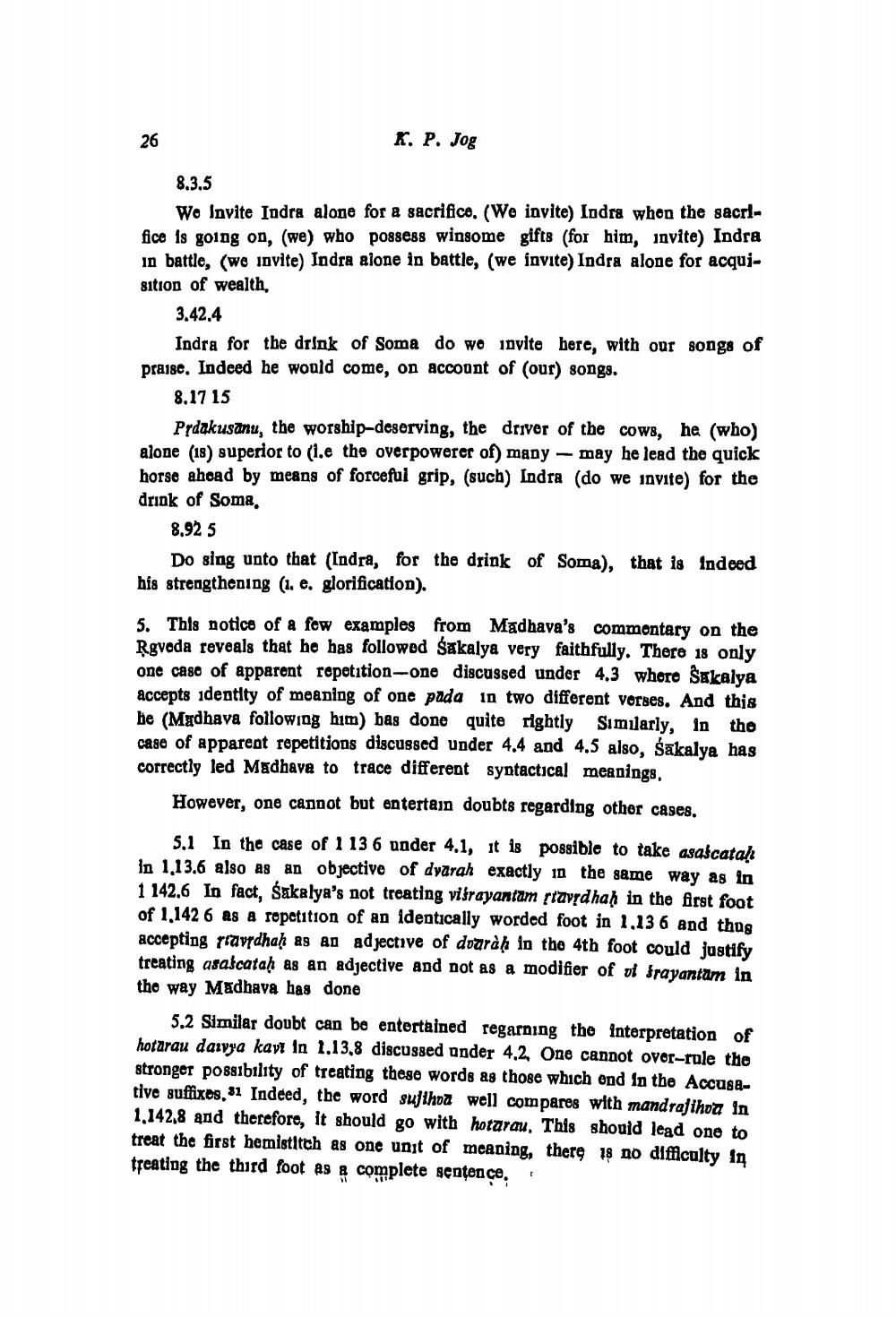________________
K. P. Jog
8.3.5
Wo Invite Indra alone for a sacrifice. (We invite) Indra whon the sacrlfice is going on, (we) who possess winsome gifts (for him, invite) Indra in battle, (we invite) Indra alone in battle, (we invite) Indra alone for acquisition of wealth,
3.42.4
Indra for the drink of Soma do we invite here, with our songs of praise. Indeed he would come, on account of (our) songs.
8.17 15
Prdakusanu, the worship-deserving, the driver of the cows, he (who) alone (18) superior to (i.e the overpowerer of) many - may he lead the quick horse aboad by means of forceful grip, (such) Indra (do we invite) for the drink of Soma,
8.92 5
Do sing unto that (Indra, for the drink of Soma), that is indeed his strengthening (. e. glorification).
5. This notice of a few examples from Madhava's commontary on the Rgvoda reveals that he has followed Šakalya very faithfully. There is only one caso of apparent repetition-one discussed under 4.3 whore Sakalya accepts identity of meaning of one pada in two different verses. And this he (Madhava following him) bas done quite rightly Similarly, in the cage of apparent repetitions discussed under 4.4 and 4.5 also, Šakalya has correctly led Madhave to trace different syntactical meanings.
However, one cannot but entertain doubts regarding other cases.
5.1 In the case of 113 6 under 4.1, 1t 18 possible to take asalcatah in 1.13.6 also as an objective of dyarah exactly in the same way as in 1 142,6 In fact, sakalya's not treating vibrayantam ştavędhah in the first foot of 1.142 6 as a repetition of an identically worded foot in 1.136 and thug accepting rravrdhaḥ as an adjective of dourah in the 4th foot could justify treating asascataḥ as an adjective and not as a modifier of ut frayantum in the way Madhava has done
5.2 Similar doubt can be entertained regarning the interpretation of hotarau daivya kayt in 1.13.8 discussed onder 4.2 One cannot over-rule the stronger possibility of treating these words as those which end in the Accusative suffixes, 31 Indeed, the word sujthod well compares with mandrajihoa in 1.142,8 and therefore, it should go with hotarau. This should lead one to treat the first hemistitch as one unit of meaning, there 18 00 difficulty in treating the third foot as a complete sentence. "




